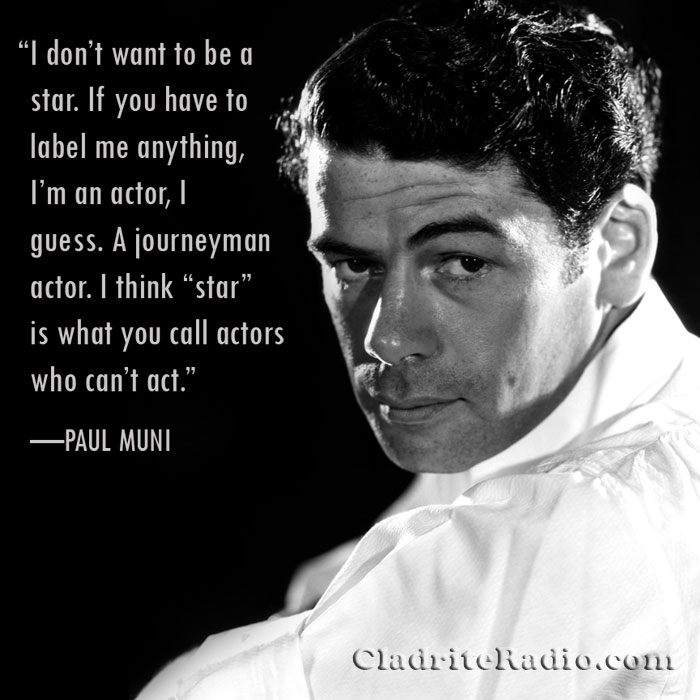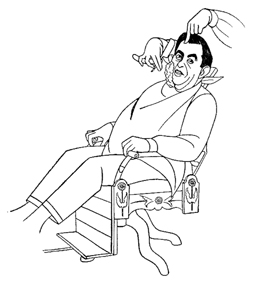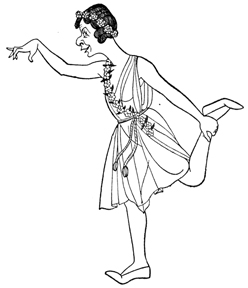Actor Paul Muni was born Meshilem Meier Weisenfreund in what is now the Ukraine 121 years ago today. Here are 10 PM Did-You-Knows:
- Both of his parents were professional actors in the Yiddish theatre.
- Muni grew up speaking Yiddish. When he was seven, his family left Austria-Hungary and settled in Chicago.
- Beginning in 1908, Muni spent four years with New York’s Yiddish Art Theatre before moving on to work for the next 14 years with other Yiddish theatres in NYC.
- His first English-language role—and Broadway debut—was in a 1926 production of a play called We Americans. Though just 31 years of age, Muni portrayed an elderly man.
- Muni began his motion picture career in 1929, but continued to alternate between the Broadway stage and Hollywood.
- Muni, along with James Dean, is one of just two actors to receive an Oscar nomination for his first film role (The Valiant, 1929) and his last (The Last Angry Man, 1959). Muni totaled six Oscar nominations, winning once (Best Actor in a Leading Role for The Story of Louis Pasteur, 1936).
- Muni’s nickname was Munya.
- Muni suffered his entire life with a rheumatic heart.
- Muni turned down the role of Roy Earle in High Sierra (1941). The part eventually went to Humphrey Bogart.
- In 1956, Muni won the Tony Award for Best Actor (Dramatic) for his role as Henry Drummond in the play Inherit the Wind.
Happy birthday, Paul Muni, wherever you may be!



